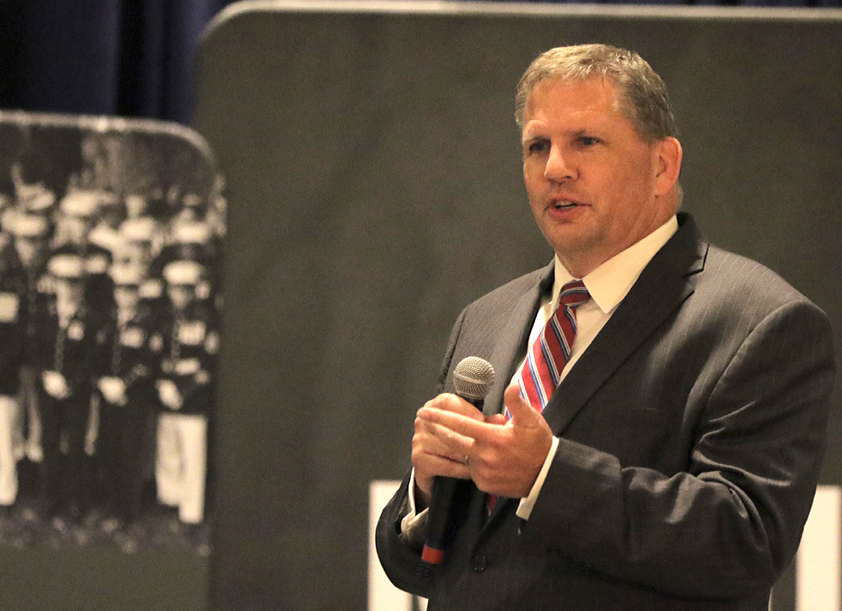
The Navy needs to pursue large-scale innovation and experimentation across the service to deter U.S. adversaries, according to the department’s number-two civilian.
James Geurts, who is currently performing the duties of the undersecretary of the Navy and previously was the service’s acquisition chief, emphasized the need for the service to go beyond small-scale experimentation and testing during the U.S. Naval Institute’s annual meeting on Wednesday.
“When an institution embraces [innovating at scale and speed] – at the individual, at the unit and all the way at the highest and lowest levels in the organization – you can get innovation at scale. Other than that, it’s a bunch of niche little things, little experiments, which are interesting, but they don’t scare a competitor. No. A cute little demo here, one little software factory here, one little new technology – that doesn’t get a competitor to change their thinking,” Geurts said.
“A competitor starts to get really concerned when they see you adapting faster than they are, when you’re challenging in multiple domains, when you’re putting things together that don’t normally go together, when you’re creating effects in ways that they haven’t considered yet. And then they start chasing you, versus us chasing [the] competitor,” he continued. “That’s my challenge for all of us in the Department of the Navy. Again, we’re moving out in some pieces of that. We’ve got to do it now at scale and speed. I think if we can do that, then we’ll continue to be the dominant naval force. If we don’t, we’re fighting a losing game, and I don’t like losing.”
Geurts described a three-pronged approach the Navy could take to innovation.
“I think if we think of the three traits I talked about in kind of this structure – of constantly thinking about the future, challenge our assumptions, create platforms that can modify quickly, and then experiment, experiment, experiment – if I go back to all the times I’ve seen innovation at scale and innovation In large organizations, that’s when it’s occurred,” he said.
As the Assistant Secretary of the Navy for Research, Development and Acquisition from late 2017 to January 2020, Geurts repeatedly emphasized a need for the service to streamline its acquisition processes and get creative in solving various problems.
“So if we have the curiosity to explore, the humility to learn, the third one is in the boldness to act. Because we can be curious and we can have lots of great ideas, but then if we’re hesitant to act, or we’re hesitant to make a change, or we want to study it to death, we’re going to be irrelevant, right. So iteration speed is really important,” Geurts said Wednesday.
“And you can tell when you’re losing to a competitor when they’re iterating faster than you are. A big concern for a lot of us is how fast our competitor [is] iterating versus how challenged we seem to be in iterating,” he added. “If we can break that and embrace boldness and value learning fast – sometimes you learn because you failed; sometimes you learn because you got an idea from somebody else.”





